I have a text file from which I read words. After that, I have to write in a binary file each word and near it the row and column where it appears. At _strdup(p) my programm crashes. Does anyone know why? I would appreciate your help. Here is the code:
void create(const char *filename, const char ****matrix) {
FILE *u, *f;
u = fopen(filename, "wb");
assert(u != NULL);
f = fopen("in.txt", "r");
assert(f != NULL);
(*matrix) = (char ***)malloc(sizeof(char **) * 1);
int i = 0;
int j=0; char buff[1024];
while (fgets(buff, 1024, f)!=NULL) {
(*matrix) = realloc((*matrix), (i + 1) * sizeof(char **));
char *p = strtok(buff, " ().,");
(*matrix)[i] = (char **)malloc(sizeof(char *));
while (p) {
(*matrix)[i] = (char **)realloc((*matrix)[i], sizeof(char *)*(j + 1));
strcpy((*matrix)[i], buff);
(*matrix)[i][j] = _strdup(p);
fwrite((*matrix)[i][j], sizeof(char *), 1, u);
fwrite(&i, sizeof(int), 1, u);
fwrite(&i, sizeof(int), 1, u);
j++;
(*matrix)[i][j] = NULL;
p = strtok(NULL, " ().,");
}
(*matrix)[i] = NULL;
i++;
printf("\n");
}
fclose(u);
fclose(f);
}
